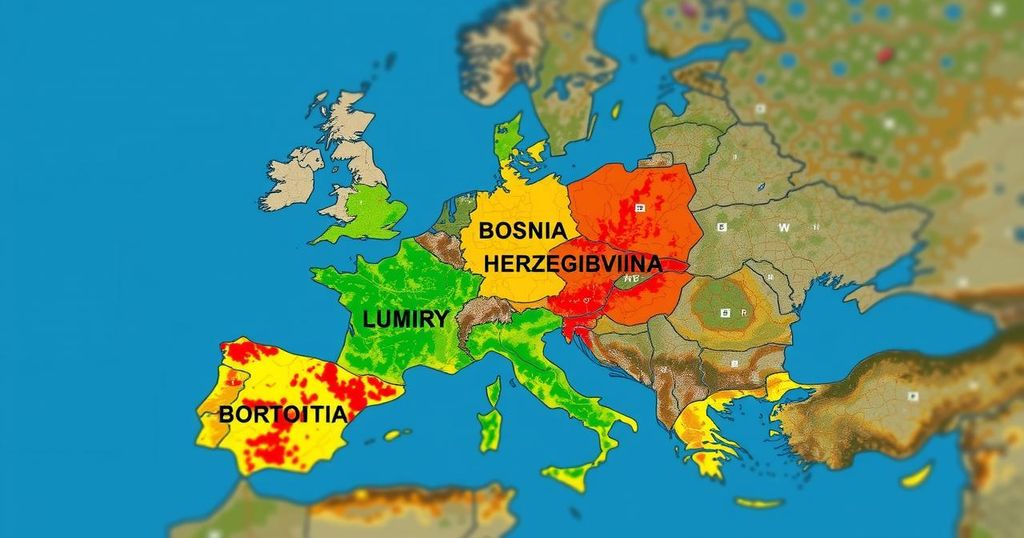Investing in Resilience: Bosnia and Herzegovina’s Path to Combat Climate Change

Bosnia and Herzegovina must invest $6.8 billion over the next decade to protect against climate change impacts, particularly flooding which constitutes over 90% of climate-related damages. The World Bank report emphasizes nature-based solutions and stresses the importance of transitioning to renewable energy. Each euro invested in climate adaptation is projected to generate significant economic returns, highlighting the economic benefits of acting decisively now for sustainability and growth.
The World Bank Group’s recently released Country Climate and Development Report emphasizes urgent investments of $6.8 billion within the next decade for Bosnia and Herzegovina to safeguard against escalating climate change threats. With projections indicating a potential economic contraction of up to 14% by 2050 due to climate-related damages, particularly from floods, the report advocates for nature-based solutions like floodplain restoration and peatland preservation. Furthermore, it highlights the economic viability of climate adaptation, estimating that each euro spent in this area could yield returns of up to ten euros. Transitioning towards a low-carbon economy is also essential, particularly reducing reliance on coal and promoting renewable energy. Such measures are crucial not only for environmental sustainability but also for ensuring economic growth and job creation, positioning Bosnia and Herzegovina favorably for the future.
The impacts of climate change pose substantial risks to economies globally, and Bosnia and Herzegovina is evidently no exception. With excessive flooding leading the damages, the country faces significant challenges to both its economic stability and its people’s welfare. This report informs stakeholders of the pressing need for strategic investments to counteract these adverse effects while simultaneously contributing to job creation through green economy initiatives. The emphasis is also placed on the necessity of institutional structures to facilitate sustained climate action, ensuring an equitable transition for its population.
In conclusion, the pressing challenge of climate change necessitates that Bosnia and Herzegovina invest significantly in resilience-bolstering initiatives. By implementing nature-based solutions and transitioning to a low-carbon economy, not only can the country mitigate further risks, but it can also unlock economic opportunities for growth and sustainability. The cooperation between public and private sectors is critical for realizing these goals, fostering a healthier, more resilient society.
Original Source: reliefweb.int






